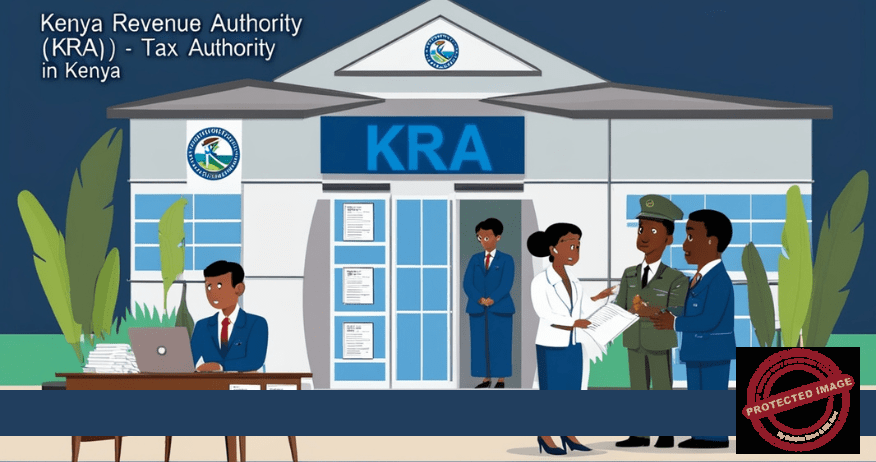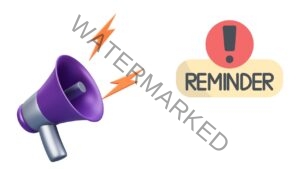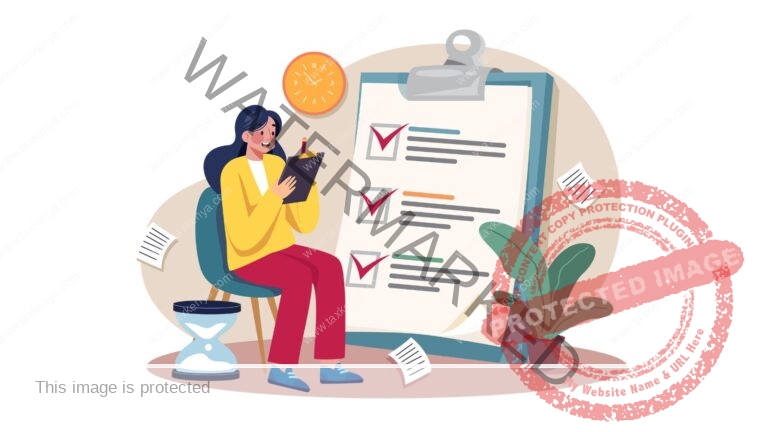Affiliate Disclosure: This post may contain affiliate links – I may receive a small commission if you purchase through links, at no extra cost to you. Read HERE.
But what exactly does KRA do, and where can you raise complaints if you feel aggrieved? This article will explore the obligations of KRA and guide you on the appropriate channels for lodging complaints.
What Is KRA?
KRA is the organisation mandated to collect, assess, and account for all revenues due to the government. The organisation operates under the Ministry of National Treasury and Planning and ensures compliance with tax laws.
Key Functions of KRA
KRA has many functions. The following are some of those functions:
- Collecting revenue for the government
- Administering and enforcing tax laws
- Facilitating trade and investment
- Providing taxpayer education
- Investigating tax fraud and evasion
Obligations of Kenya Revenue Authority (KRA)
KRA plays a crucial role in Kenya by maintaining a fair tax system. Below are some of its primary obligations:
1. Tax Collection and Administration
KRA collects taxes from individual and business taxpayers, including income tax, value-added tax (VAT), customs duty, and excise duty. It ensures taxpayers remit their dues on time and the government has enough funds for national development.
2. Enforcement of Tax Compliance
KRA ensures all taxpayers comply with tax laws through investigations, audits, and the levy of penalties and interest on defaulters. The organisation also works to prevent tax evasion and fraud, providing a level playing field for all businesses.
3. Registration of Taxpayers
All eligible taxpayers in Kenya must register with KRA on iTax to obtain a Personal Identification Number (PIN). This number is essential for various transactions, including opening bank accounts, applying for government tenders, and registering businesses.
4. Issuing Tax Compliance Certificates
KRA provides tax compliance certificates (TCC) to individuals and businesses that meet their tax obligations on a timely basis. A TCC is often required when applying for tenders, loans, and government jobs.
5. Taxpayer Education and Awareness
KRA educates the public on tax obligations through workshops, campaigns, and online resources. This helps taxpayers understand tax policies, benefits, and compliance requirements.
6. Facilitating Trade and Investment
KRA regulates imports and exports by imposing customs duties and ensuring adherence to trade laws. It facilitates trade by reducing tax-related bottlenecks and simplifying business procedures.
7. Resolution of Tax Disputes
KRA provides mechanisms for resolving tax disputes between taxpayers and the authority amicably, ensuring fairness and transparency in tax administration.
Where to Complain If Aggrieved
You can complain if you feel KRA has mistreated you or made an incorrect tax assessment. Below are the official channels where you can lodge your complaint:
1. KRA Contact Center
You can reach KRA through their contact center by calling their hotline or emailing.
- Phone: +254 (0) 20 4999 999 / +254 (0) 711 099 999
- Email: callcentre@kra.go.ke
- Website: www.kra.go.ke
2. KRA Service Centers and Offices
You can visit any KRA office or Huduma Center to speak with a KRA representative.
- Locate the nearest KRA office using the KRA website.
- Carry relevant documents to support your complaint.
3. Taxpayer Service Desk (iTax Portal)
KRA has an online portal (iTax) where taxpayers can submit queries and complaints related to tax matters. Log in to iTax and submit your issue.
4. Tax Tribunal
If your dispute is not resolved through KRA’s internal processes, you can escalate it to the Tax Appeals Tribunal. This independent body hears and resolves tax disputes between taxpayers and KRA.
- Email: Website: judiciary.go.ke
5. Ombudsman (Commission on Administrative Justice – CAJ)
If you are dissatisfied with how KRA has handled your tax issue and think the organisation has violated your rights, you can file a complaint with the Ombudsman (CAJ).
- Phone: +254 202 270 000
- Email: info@ombudsman.go.ke
- Website: www.ombudsman.go.ke
6. Ethics and Anti-Corruption Commission (EACC)
If your complaint involves corruption incidences or unethical practices within KRA, report it to EACC.
- Toll Free: 1551
- Website: www.eacc.go.ke
7. Kenya National Commission on Human Rights (KNCHR)
For human rights violations related to taxation issues, you can approach KNCHR.
- Email: haki@knchr.org
- Website: www.knchr.org
Final Thoughts
The Kenya Revenue Authority (KRA) regulates tax collection, compliance enforcement, and trade facilitation. However, if you ever feel aggrieved by KRA’s decisions or actions, you have multiple channels to file a complaint, including KRA’s contact center, the Tax Tribunal, and the Ombudsman. By understanding your rights and the available avenues for redress, you can ensure a fair tax experience in Kenya.




